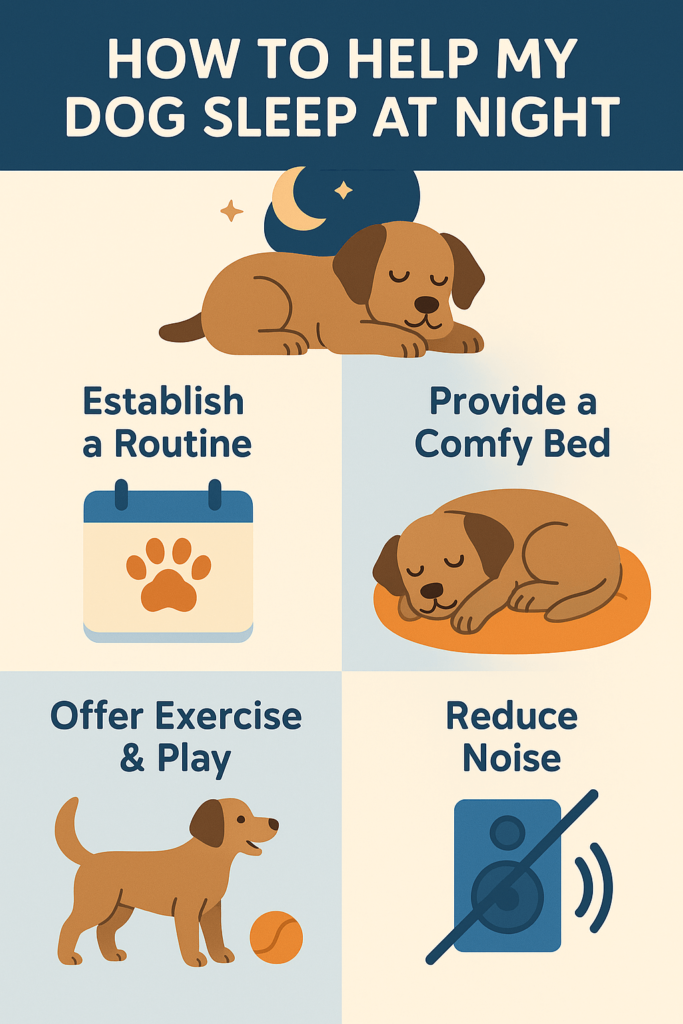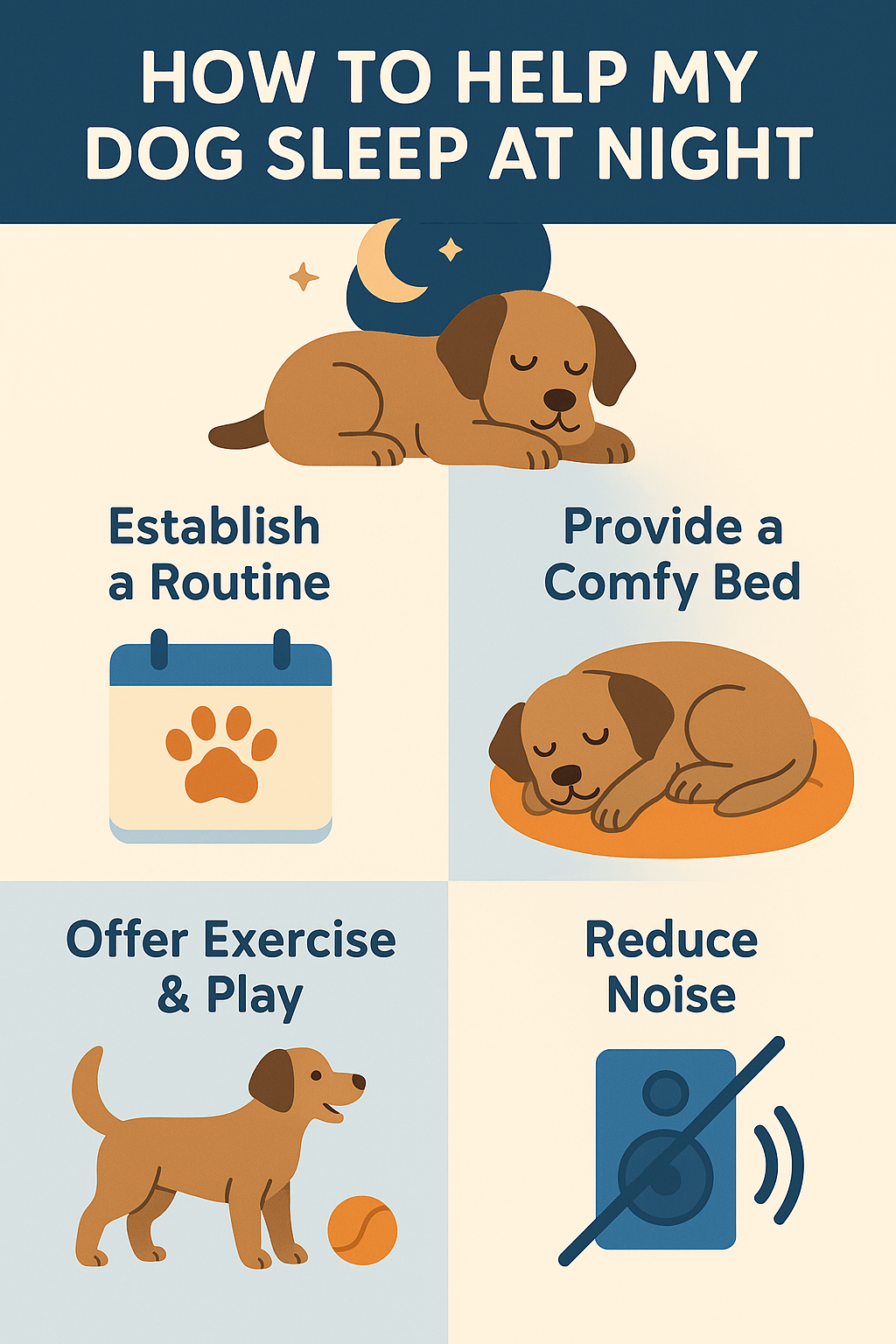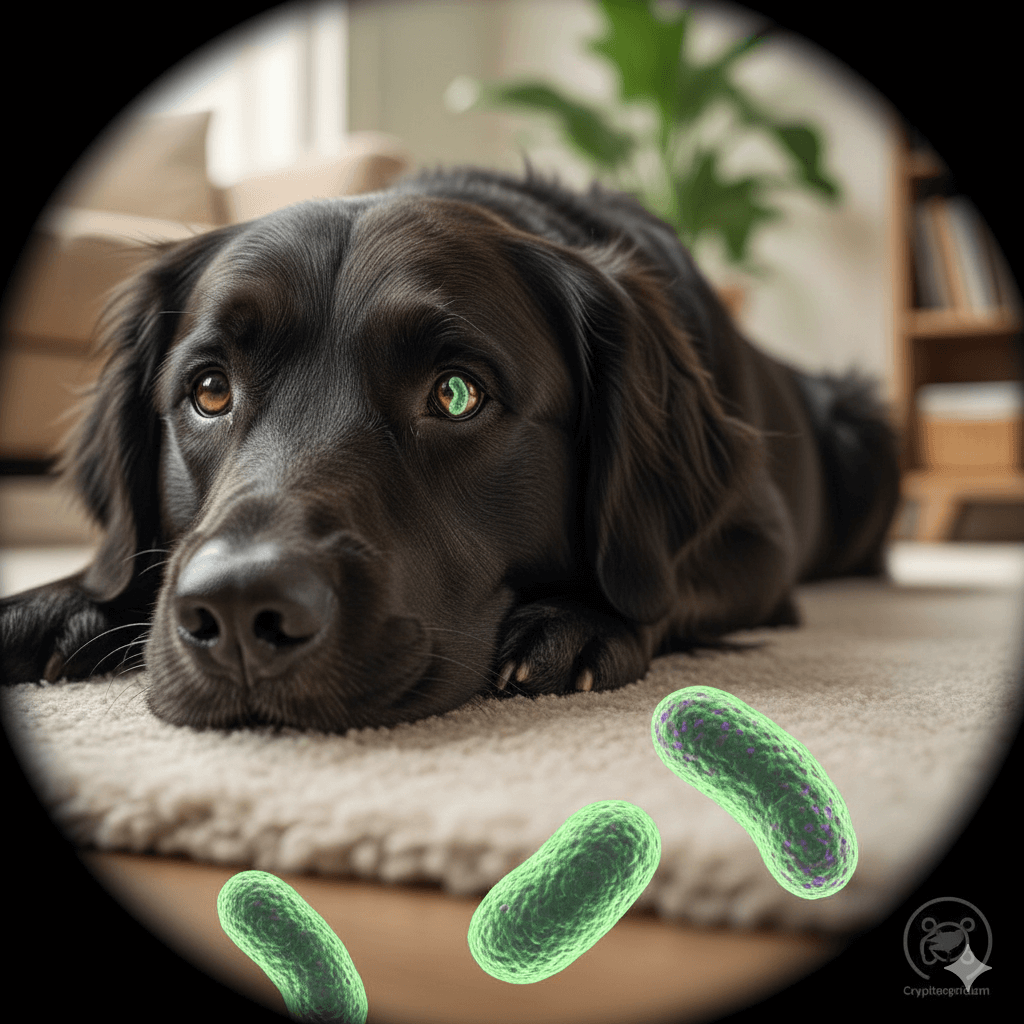How to Help My Dog Sleep at Night
Is your dog restless at night, keeping you awake with pacing, whining, or constant movement? A good night’s sleep is just as important for dogs as it is for humans, yet many pet owners struggle to help their furry companions settle down. Whether your dog is a puppy, a senior, or somewhere in between, nighttime restlessness can stem from a variety of factors, including anxiety, lack of exercise, or an uncomfortable sleeping environment. Fortunately, there are practical steps you can take to ensure your dog sleeps soundly through the night. In this guide, we’ll explore expert tips and strategies to create a peaceful bedtime routine and improve your dog’s overall sleep quality.
Expert Insight: The Role of Natural Remedies in Pet Sleep
“One trend in the pet industry is the growing popularity of natural remedies for pets. Many pet owners are turning to natural supplements and remedies to help their dogs sleep better at night. One professional in the field notes, ‘Natural remedies like melatonin or CBD oil can be a great option for dogs who have trouble sleeping. These products can help promote relaxation and calmness, making it easier for your dog to drift off to sleep.’”
– Dr. Jess
Establishing a Consistent Bedtime Routine
A predictable bedtime routine helps signal to your dog that it’s time to wind down and prepare for sleep. Dogs thrive on structure, and a calming pre-sleep ritual can make a significant difference in their ability to relax.
Set a Fixed Bedtime:
Choose a consistent time for your dog to go to bed each night. This helps regulate their internal clock and promotes better sleep patterns.Engage in Calming Activities:
Spend the last hour before bed engaging in low-energy activities like gentle brushing or quiet play to help your dog unwind.Limit Late-Night Excitement:
Avoid rowdy games or intense training sessions close to bedtime, as they can leave your dog too energized to sleep.Create a Wind-Down Signal:
Use specific cues, such as dimming the lights or playing soft music, to let your dog know it’s time to relax.Stick to the Routine Daily:
Consistency is key—even on weekends or holidays—to reinforce the habit and prevent disruptions.
By implementing these steps, you can help your dog transition smoothly into a restful night’s sleep.

Optimizing Your Dog’s Sleeping Environment
A comfortable and inviting sleeping space is essential for helping your dog feel secure and relaxed at night. Small adjustments to their environment can make a big difference in their sleep quality.
Choose the Right Bed:
Select a bed that suits your dog’s size, age, and preferences. Orthopedic beds are ideal for older dogs with joint issues.Ensure Proper Temperature:
Keep the room cool but not cold—dogs typically sleep better in cooler environments.Minimize Noise and Distractions:
Use white noise machines or fans to drown out sudden sounds that might startle your dog awake.Provide Familiar Scents:
Place a blanket or item with your scent near your dog’s bed to provide comfort and reassurance.Block Out Light:
Use blackout curtains or eye masks (for particularly sensitive dogs) to reduce light exposure, mimicking natural nighttime conditions.
A well-optimized sleeping environment sets the stage for deep, uninterrupted sleep for your furry friend.
Check this guide 👉Dog Sleep Apnea and Seizures: Best 7 Expert Tips!
Check this guide 👉My Dog Sleeps All Day: Best 7 Expert Tips!
Check this guide 👉Why Does My Dog Sleep With Their Head Propped Up? Best 7 Tips
Signs Your Dog Isn’t Sleeping Well | Possible Solutions |
|---|---|
Restlessness or pacing at night | Establish a calming bedtime routine |
Frequent waking or barking | Address potential anxiety triggers |
Daytime lethargy | Increase daily physical activity |
Scratching or digging at bedding | Provide a more comfortable sleeping surface |
Whining or seeking attention | Gradually reduce nighttime interactions |
Encouraging Physical and Mental Stimulation During the Day
Dogs need adequate physical and mental exercise during the day to feel tired enough to sleep soundly at night. Without sufficient stimulation, they may have excess energy that disrupts their rest.
Schedule Regular Walks:
Aim for at least two walks per day, ensuring your dog gets plenty of fresh air and movement.Incorporate Playtime:
Engage in interactive games like fetch or tug-of-war to burn off energy and strengthen your bond.Introduce Puzzle Toys:
Mental challenges, such as treat-dispensing puzzles, keep your dog’s mind sharp and tire them out mentally.Practice Training Sessions:
Short, focused training sessions throughout the day can help expend mental energy while reinforcing obedience.Avoid Overstimulation Before Bed:
Finish active play and exercise at least two hours before bedtime to allow your dog time to calm down.
Balancing physical and mental stimulation ensures your dog is ready to rest when nighttime arrives.
Addressing Anxiety and Behavioral Issues
For some dogs, nighttime restlessness stems from anxiety or behavioral challenges. Identifying and addressing these underlying issues is crucial for improving their sleep.
Identify Triggers:
Observe your dog’s behavior to pinpoint what might be causing stress, such as loud noises or separation anxiety.Use Calming Products:
Consider products like anxiety wraps or pheromone diffusers designed to soothe nervous dogs.Desensitize to Noises:
Gradually expose your dog to common nighttime sounds (e.g., doorbells or traffic) to reduce fear reactions.Consult a Professional:
If anxiety persists, seek guidance from a veterinarian or certified animal behaviorist for tailored advice.Reinforce Positive Behaviors:
Reward calm behavior at night with treats or praise to encourage relaxation over time.
Tackling anxiety head-on can transform your dog’s nighttime experience and restore peace to your household.
Common Mistakes to Avoid
While trying to help your dog sleep better, it’s easy to unintentionally make mistakes that hinder progress. Being aware of these pitfalls can save you time and frustration.
Giving Too Many Treats Before Bed:
Feeding high-calorie snacks late at night can lead to digestive discomfort and disrupt sleep.Ignoring Signs of Pain or Illness:
Restlessness could indicate an underlying health issue. Always consult a vet if unusual behavior persists.Allowing Excessive Napping During the Day:
Limit daytime naps to ensure your dog is sufficiently tired by bedtime.Using Punishment for Nighttime Behavior:
Scolding your dog for waking up can increase anxiety and worsen the problem.Skipping Exercise Altogether:
Failing to provide regular physical activity leaves your dog with pent-up energy that interferes with sleep.
Avoiding these mistakes ensures you’re creating the best possible conditions for restful nights.
Natural Remedies to Promote Sleep
If your dog struggles with sleep despite your best efforts, natural remedies can offer additional support. These options are safe and effective when used correctly.
Herbal Supplements:
Ingredients like chamomile or valerian root can promote relaxation without sedation.CBD Oil:
Non-psychoactive CBD oil has gained popularity for its calming effects on anxious pets.Melatonin:
This hormone supplement can help regulate your dog’s sleep-wake cycle, especially for seniors or those with irregular schedules.Warm Milk or Bone Broth:
A small serving of warm milk or broth before bed can soothe your dog and encourage drowsiness.Essential Oils (Pet-Safe):
Lavender oil, when properly diluted, can create a calming atmosphere in your home.
Natural remedies can complement other strategies to enhance your dog’s sleep quality.
Adjusting for Age-Specific Needs
Different life stages come with unique sleep requirements. Tailoring your approach based on your dog’s age ensures their needs are met effectively.
Puppies:
Puppies often wake up frequently due to small bladders and growing bodies. Take them out for potty breaks as needed.Adult Dogs:
Maintain a balanced routine of exercise and downtime to keep adult dogs healthy and rested.Senior Dogs:
Older dogs may experience joint pain or cognitive decline, requiring softer bedding and extra comfort measures.Active Breeds:
High-energy breeds like Border Collies or Huskies need extended exercise to tire them out fully.Small Breeds:
Smaller dogs may benefit from shorter, more frequent walks to prevent exhaustion.
Understanding your dog’s age-specific needs allows you to fine-tune your strategy for optimal results.
Frequently Asked Questions About Helping Your Dog Sleep at Night
Why is my dog restless at night?
Restlessness can result from insufficient exercise, anxiety, or an uncomfortable sleeping area.
Should I let my dog sleep in my bed?
It depends on your preference and your dog’s behavior. Co-sleeping can comfort some dogs but disrupt others.
What if my dog wakes up barking?
Ignore the behavior initially; rewarding it with attention can reinforce the habit.
Can diet affect my dog’s sleep?
Yes, heavy meals or certain foods right before bed can cause discomfort and disrupt sleep.
When should I see a vet about my dog’s sleep issues?
Consult a vet if your dog’s restlessness persists, as it could indicate pain, illness, or other medical concerns.
Creating Peaceful Nights for You and Your Dog
Helping your dog sleep at night doesn’t have to be a daunting task. By establishing a consistent routine, optimizing their environment, and addressing any underlying issues, you can set the foundation for restful nights and happier days. Remember, every dog is unique, so patience and observation are key to finding what works best for your furry companion. With these expert tips and strategies, you’ll not only improve your dog’s sleep but also enjoy quieter, more relaxing evenings together. Sweet dreams await—for both of you!
Understanding Cryptosporidium in Cats: Best 7 Expert Tips! – Spot symptoms, treat safely, and stop parasite spread in your home.
Understanding Cryptosporidium in Dogs: Best 7 Expert Tips! – Learn symptoms, treatment & prevention for this stubborn gut parasite.
Understanding Syringomyelia in Cats: Best 7 Expert Tips! – Recognize signs, manage pain, and support your cat’s neurological health with vet-backed guidance.
Understanding Syringomyelia in Dogs: Best 7 Expert Tips! – Expert insights on symptoms, MRI diagnosis, pain management & quality of life.





